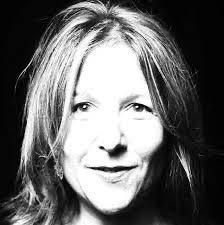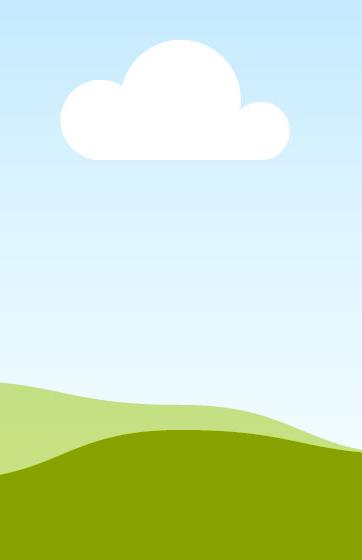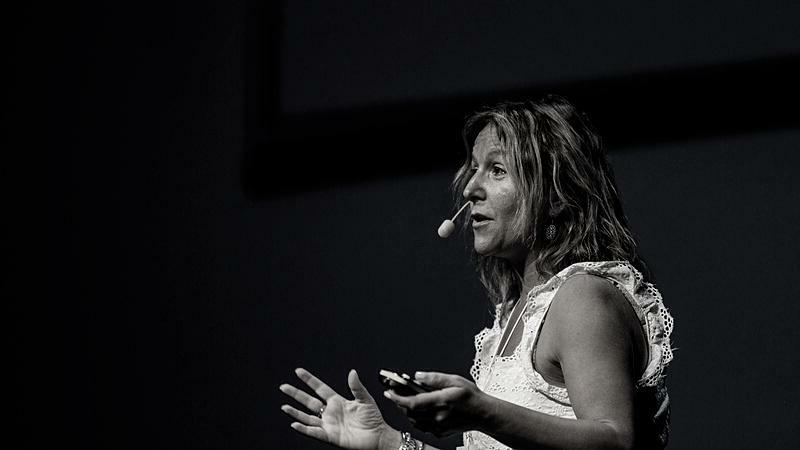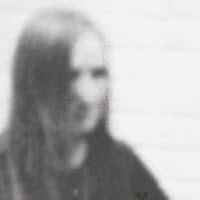
GAYNOR O'FLYNN CHRIS LOVELL LUCY MANNING NICK ROTHWELL


GAYNOR O'FLYNN CHRIS LOVELL LUCY MANNING NICK ROTHWELL
BEINGHUMAN IS A SERIES OF CONVERSATIONS BETWEEN BEINGHUMAN FOUNDER GAYNOR O'FLYNN & COOL, CLEVER CREATIVES WHO CARE.
GAYNOR EXPLORES THESE EXCEPTIONAL, ELUSIVE, ETHICAL HUMANS THROUGH THE LENS OF THEIR CREATIVE WORK, LIFE & PRACTICE.
THEY INVESTIGATE WORKS THAT INFORM WHO THAT PERSON IS, WHAT THEY DO, HOW THEY DO IT & WHY.
ONCE A YEAR, BEINGHUMAN RELEASES A LIMITEDEDITION PHYSICAL MAGAZINE OF LIFE.



Nicole Yershon is the original super connector. She's a consultant, speaker and mentor, whose ethos is driven by "connecting the dots" - whether that's connecting people, tech or companies.
Always willing to disrupt the status quo, she's a businessperson who's not afraid to innovate. For her, making change is about getting things done not just talking about it. She brings organisations "kicking and screaming" into the 21st Century.
The Drum named her one of the 25 Women Who Shaped The Digital Industry. And she's one of Wired magazine's top 100 in its first annual survey of Britain’s digital power brokers.
Nicole founded Ogilvy Labs and the NY Collective. And she's the author of Rough Diamond: Turning Disruption Into Advantage in Business and Life. Her clients have included Havas, Amex, IBM, Ravensbourne University, BP, London Business School, Accenture…
GAYNOR: Hello and welcome to the latest Beinghuman interview. This time we ' ve got the amazing Nicole Yershon, founder and CEO of the NY Collective. So Nicole, how did you get started in the industry?
NICOLE: In the olden days, what you did was write letters to about 100 top agencies. Campaign magazine showed you the 100 top creative agencies, and I wrote letters to all 100 of them. And then I got maybe 20 replies. Out of those, I got two saying: "Come in for an interview." And out of those two interviews, I got a job.
GAYNOR: Did you study? Or did you go straight from school?
NICOLE: Weirdly enough, I went to a finishing school. I think my parents wanted to smooth the rough diamond a little bit. From there, I got a job at a company called Dorland Advertising. And I was there for a year before then writing the 100 letters. And I did secretarial skills, so Pitman shorthand. I'm really showing my age!
GAYNOR: But you can type properly though!
NICOLE: I'm quick! I'm about 120 words a minute or something!
GAYNOR: I always think of you as an expert in the digital space. How did you come into that? What
was your role? And why were you excited about it?
NICOLE: So, from working in advertising over many years, I had a reputation of being a fixer almost like a Harvey Keitel character. You know, you want something done? Ask a busy person. Then I got a phone call in 2000 from the chairman of Ogilvy. He just said: "I'm at Ogilvy, but it's like working at the civil service. It's so much paper and analogue." And he gave me a brief to bring Ogilvy into the 21st Century. In the early days, it was business transformation – looking at how they could automate a lot of the work they were doing. So that's what I implemented in the first few years.
GAYNOR: So, what was it that you found exciting at the start of digital? Could you see how it was going to go?
NICOLE: Yeah, so I started to see all these other things cropping up. So I'm now talking about 2003. And there was Facebook, mobile, gaming, social, AI, VR, big data, behaviour change all these things were popping up. And I was really excited about them. I remember sending a note around to Ogilvy staff, saying: "There's something called Facebook you guys really need to pay attention." And a few people sent me a note back, saying: "Stop spamming me!" Because I was getting all excited about these things. And people just wanted to carry on doing their day job. Not everyone, but most.
GAYNOR: So when did you really start to feel the change?
NICOLE: Well, I worked much more with OgilvyOne – and what they used to call below-the-line advertising. They used to do CRM [customer relationship management] and they were much more familiar with data. They took to digital really quickly.
GAYNOR: So when did you start to realise that on top of the data, there's such a big creative role in digital and innovation?
NICOLE: Well, I set up Semesters of Learning, which was six months’ intense learning on one particular topic. So I would do six months of learning on, for example, streaming media. So the organisation could teach its clients that there was this whole world of streaming media for six months. We'd go to any event and bring that learning back to the client. And we then attached it to business. So, with Ford, I had to convince the TV department, who said: "Oh, no, we don't do live streams or streaming. We do TV." And I said: "Not anymore!" So then part of the semester was implementing that change. Then at the end of the semester, you pull together a lab day for 500 people with all of that learning. We did those semesters for 15 years. So that was how we infiltrated all this new creative, amazing stuff. Not just learning about it, but
creatives coming up with an idea to fix a client's problem, and then implementing it. So it was giving Ogilvy a different business model. So Ogilvy now didn't just do TV and print they now did augmented reality, mobile, gaming... And that's how we move forward.
GAYNOR: And so did these semesters become the Innovation Lab?
NICOLE: The semesters, obviously, were key. But I wasn't given any money to do this lab. So I took one of the meeting rooms and we called it a lab. We had everything in there 3D printers, augmented reality on the screens, the latest thing in retail, Microsoft Surface tables... All these different amazing things. We would bring clients into that meeting room and showcase to them the art of the possible. So a key ingredient of the labs was the physical space. And then it was the ability to make something happen that had never been done before. So it was an experimentation space. When we were doing a semester, I'd say to 2,000 people across the group: "Who's interested in big data?" And people would put their hands up. And they would then be part of the lab – the learning and the sharing.
GAYNOR: So you sort of created your own role in innovation within quite an established, old-
fashioned company as you moved into the digital age. Is that right?
NICOLE: Yeah, it was because I was given such an open brief by the leadership at the time. And I was able to leverage doing all these different things and was allowed to be, I guess, a maverick. But also an alchemist. Because I would make things happen that weren't there before. Or I would spot things that needed to happen.
We did a diversity and inclusion programme called the Rough Diamond programme in 2004 or 2005 with Ravensbourne University. We brought in 14 to 16 year olds who were about to be expelled from school. Those were the ones we wanted. Because I was fed up that Ogilvy was constantly hiring the same types of people – white, middle-class, Oxbridge-educated – and expecting a change in thinking.
GAYNOR: So did that work inform the book?
NICOLE: Yes, that's, that's why I named the book Rough Diamond. But the book is mainly about turning disruption into advantage – in business and in life. There are a lot of stories about trying to make things happen, and everyone says: "No, it can't, or it won't happen." Or "You've got no money. " It's about how to get over those hurdles. And how to collaborate and work with people. It might be that you don't even know how to make these things
happen, because they've never been done before. But it's about not being scared. It also goes into life: when shit hits the fan. You know, my mother being diagnosed with terminal cancer, the lab being closed down, and getting divorced.
I was writing about life's disruptions things that you ' ve never been through before. You don't think you ' re going to get through it. But it's about how you can get through it with resilience. You know, the things you hear about in lots of people's day to-day lives – courage and fearlessness and just keeping moving, one step forward.
I had a really unbelievable cotton-wool upbringing. I was with the same guy for 30 years, I had a privileged upbringing. But I had a very strong work ethic. And when all that crumbled, I didn't know there was a light at the end of the tunnel because I'd never experienced it. So the book goes into that and also, when it comes to business, about people saying no, or "That can't be done." And how you go about it anyway.
GAYNOR: And what would you say are the key ways that you do that? You've mentioned resilience, bravery... How do you develop those skills?
NICOLE: I think, a strong sense of self. And I was always curious. And emotional intelligence. I was conscious that I was running a team within the labs. And I really hated the old-fashioned HR way of
doing a 360 review, and then letting people know what they need to get better at. And I thought, maybe they're never going to be good at that. Why don't we look at what they're good at and make them better at what they're good at. And that should make them happier. So we used to do emotional intelligence reviews. I would always think: maybe there's another way.
GAYNOR: So then I guess that brought you to setting up your own collective now. Can you tell us a little bit about what you ' re doing with that?
NICOLE: It's such a mix of things because I'm as Elon Musk would call it – an expert generalist. So, you know, I know enough to be dangerous. Or I'm a super connector I connect dots and I make things happen. So the collective is a bunch of companies that I can pull upon from all of those years of having such a rich, beautiful black book of partners. I'm working at the moment with a start-up, which is really interesting. I'm acting as a conductor. So I'm pulling in the right companies and the right people, depending on what it is that they need doing. And I'm working with a company to develop a virtual lab environment. I've also done work with the Young Vic, setting up a mentorship programme.
GAYNOR: Tell us more about that…
NICOLE: I was mentoring the mentors to then mentor mentees. They've got the most amazing batch of
mentors right now. And they've had all these mentees sign up. And I was training the trainers. So that was really fulfilling because I learned so much from them. That's the beauty with mentoring – you learn from them, and they learn from you.
GAYNOR: So you ' re working not only in advertising now, but across tech start-ups, the arts... Which area do you find the most exciting? Or do you love it all?
NICOLE: The most exciting thing is when you ' re working with decent people – so I don't care what area it is. So I don't want to say: "Oh, I'm working with IBM." It would be: "I'm working with John, who just so happens to be at IBM." It's all to do with the people. Because then I can just be myself, and be honest, open and collaborative.
GAYNOR: We see enormous changes in the digital space, which just keep happening more and more quickly. What do you find the most exciting, innovative things happening now in the digital space?
NICOLE: Well, I've been working virtually pretty much since I left corporate life at Ogilvy. Technology allows us to not have an office and to be able to work from anywhere. And because of covid, the whole world has had to start to think differently. People are thinking, well, maybe it doesn't have to be done in the way it's always been done. That then
gets us away from micromanagers, who used to say: "I want to see you in your office and I want to see everyone at their desk." And you'd be frightened to leave before a certain time. That's all stopped.
GAYNOR: I know what you mean. I've always worked from a laptop. But it just feels like everybody's now doing it. You know, various cafes have been my office for forever.
NICOLE: Yeah, then there's all the things that pop up to cope with that, like Lunchclub. I've been really enjoying Lunchclub. It's been quite serendipitous for meeting some really lovely people. That whole covid time was interesting.
GAYNOR: So what would be the ideal project for your collective, moving forward now? Or are you just completely open to whatever arrives?
NICOLE: I'm always open to anything. I never turn anything down. If I can't do it, I'll know someone who can do it. I can't help but connect. It gives me a lovely fuzzy feeling. So I'm open to just working with good people. It's not the brand or the genre or the area. When you get to a certain age, you know what good feels like.
GAYNOR: It sounds as though a lot of the work you ' re doing now is about using digital in a way that is inclusive, that gives back, and that allows and supports diversity…
NICOLE: Well, everything is digital. So I'm just moving forward with the least resistance. I'm curious enough to find out what else is out there, and then embrace it. Even though I know it's going to be painful for a couple of months. Like, learning things like Basecamp... Also, I had to learn Facebook Manager and do ads on Facebook. I knew I just wanted to transport myself two months from now and then it would feel normal.
GAYNOR: Someone asked me yesterday: "How technical are you?" And I thought, me-20-yearsago would think me-now is amazingly technical. Because we all are, right? It's a relative concept, isn't it?
NICOLE: Yes, or we know someone who knows more than us. We don't have to be the über-tech – we just need to have an understanding of how things work. And that's why the semesters were so good – because I could really get to grips with people who were talking to me about AR [augmented reality], for instance. They knew much more than me, but I just needed to know enough to be dangerous – to know what it could do.
Whatever I do needs to come with a leader who wants change, who doesn't just say: "Oh, I really need to innovate at the core of this organisation." But when you say what you need to do, they say: "Oh, no, we don't want to do that – that's business transformation." But to innovate, it is business
transformation because you ' re doing something you hadn't done before.
GAYNOR: Moving forward, if you had to give advice to women entering the tech industry now – or the tech side of the advertising industry – what would your advice be?
NICOLE: You don't have to be perfect at something. So if you understand yourself well, and know your strengths and weaknesses, then you'll know your weaknesses will be someone else's strengths. And you'll feel comfortable and confident enough to bring them into the mix to really, truly collaborate.
GAYNOR: Thank you so much. It's been lovely talking to you. And if people want to get in touch with you, where's the best place to go?
NICOLE: Yeah, the beautiful thing about my name and I have to thank my parents, with SEO – is that there's only one me! So just Google "Nicole Yershon" and then you'll see Twitter, Insta, it's all under my name. So my website is nicoleyershon.com. The company is called the NY Collective. If you want to find me, I'm there for the picking!
GAYNOR: Thank you so much, Nicole. Lovely to talk to you.
NICOLE: Thank you, Gaynor. It's been a pleasure.

Gaynor O'Flynn is a performer, writer, director & maverick.
In her extensive career, she has worked with luminaries including Anton Corbijn, Björk, the Dalai Lama, Stomp, Terry Gilliam, The Verve, New Order, PJ Harvey & Eddie Izzard. She has collaborated with organisations such as UNESCO, the BBC, Channel 4, Canal+, the BFI, the British Council & Google.
The BBC called her ‘that conscious, cathartic voice’, Artrocker ‘bloody brilliant', Le Cool London 'hugely fnlightening' & Frieze ‘exhilarating’.
She is founder of Beinghuman Ltd & The Beinghuman Collective CiC & has campaigned & spoken to millions globally on humanitarian & environmental issues. Gaynor is a student of Dzogchen, a Himalayan philosophy she embeds in her life, work & art.